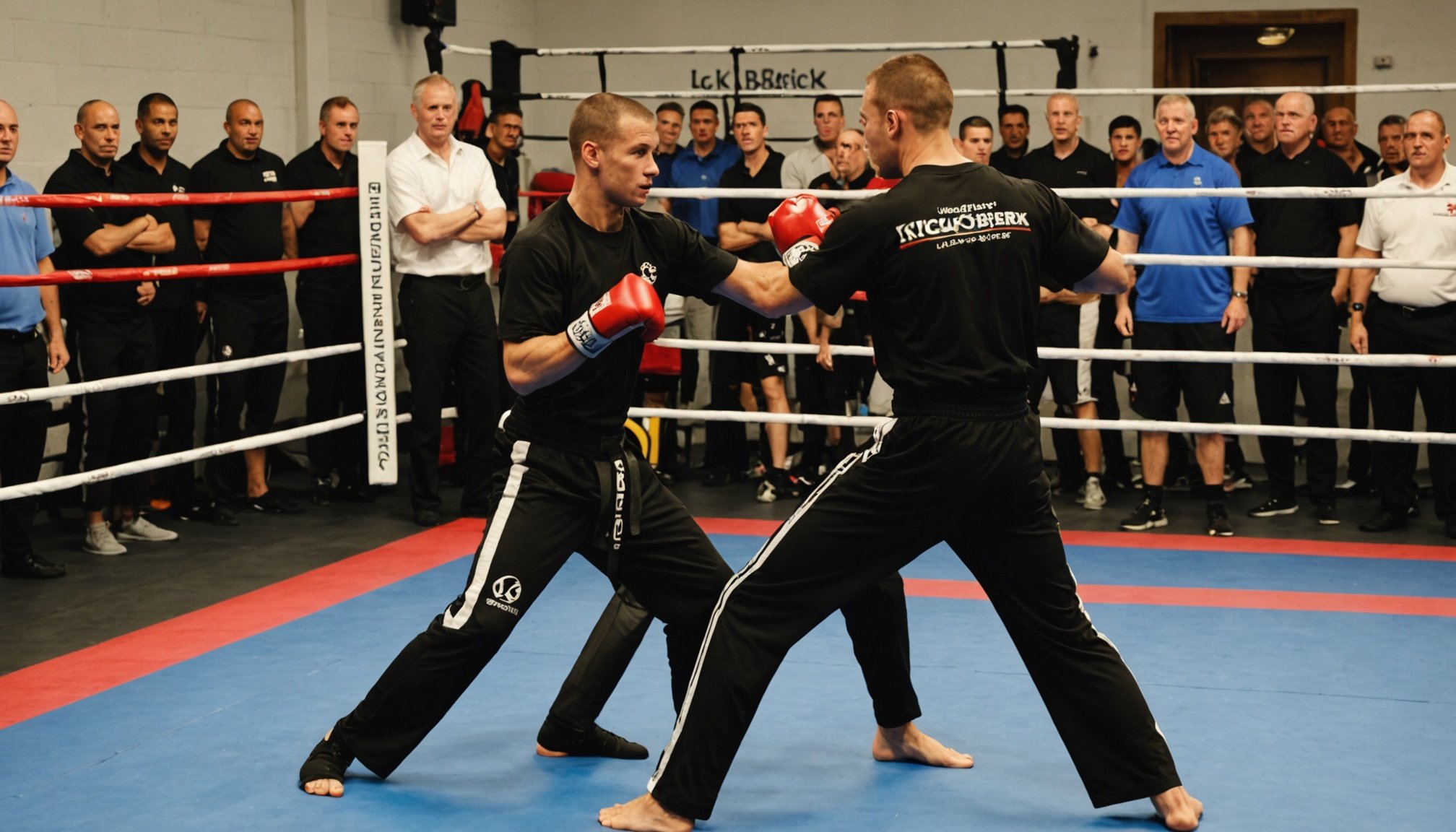Innovative Training Techniques for UK Kickboxers
Kickboxing in the UK is embracing innovative training methods to enhance performance. The integration of specificity in training routines plays a crucial role. Tailoring these routines to focus on kickboxing techniques ensures athletes develop skills with precision and relevance to the sport.
Incorporating advanced footwork drills is pivotal. Efficient movement is fundamental in kickboxing; therefore, understanding and performing diverse footwork patterns can give fighters a competitive edge. Drills designed to improve agility and speed contribute significantly to enhancing an athlete’s footwork proficiency.
Also to see : Unleashing your inner champion: the complete uk boxer”s handbook to speed bag mastery
Moreover, utilizing technology for performance tracking is revolutionizing training. With wearable devices and motion analysis software, kickboxers can monitor their progress meticulously. This allows for real-time feedback and detailed analysis of each technique, helping athletes and coaches to identify areas for improvement efficiently.
- Specificity in routines ensures that training aligns closely with competitive demands.
- Advanced footwork drills enhance speed and agility.
- Technology in performance tracking provides valuable insights into performance metrics.
Overall, these advancements highlight the shift toward more precise and effective training in the kickboxing arena, encouraging athletes to utilise these technologies and techniques to boost their competitive edge.
This might interest you : Ultimate nutrition strategies for effective muscle recovery: essential insights for uk combat sports athletes
Tactical Insights for Match Preparation
In the realm of competitive sports, having a well-structured plan and tactical strategies is crucial. One key component is the analysis of opponents’ fighting styles. By thoroughly studying an opponent’s techniques and behaviours, athletes can identify patterns and weaknesses. This intelligence allows for the development of counter-strategies, tailoring game plans that are more likely to yield a competitive edge.
Developing adaptable game plans is another essential part of effective match preparation. This involves not only creating initial strategies but also being prepared to adjust these plans as the match progresses. Flexibility is vital; the ability to adapt in response to unexpected moves or changes in an opponent’s game can mean the difference between victory and defeat.
Moreover, incorporating a strategic warm-up routine enhances both physical and mental readiness. A well-designed warm-up primes the body for the high demands of competition. It also mentally prepares athletes, allowing them to enter the match focused and confident. This routine should be consistent but also tailored to individual needs, ensuring each player is optimally prepared.
By integrating these tactical strategies, competitors are better positioned to maximize their potential and secure a competitive edge in their respective fields.
Mental Conditioning and Focus
Improving mental conditioning and maintaining sharp focus is crucial for achieving success, particularly in competitive environments. Developing these focus techniques can enhance psychological resilience, enabling individuals to perform at their best even under pressure. This section explores visualization techniques, mindfulness practices, and preparation for adversity that collectively build a robust mental framework.
Visualization Techniques
Visualization is a powerful tool in mental conditioning, allowing individuals to mentally rehearse and prepare for actual performances. By vividly imagining success, one can boost confidence and readiness. Techniques such as imagining various scenarios and outcomes help athletes enhance focus and reduce anxiety, setting the stage for triumph.
Mindfulness Practices
Engaging in mindfulness practices foster mental balance and clarity. Techniques like meditation and breath control center the mind and heighten awareness. These practices train the brain to remain present, which aids in diminishing distractions and elevating performance.
Preparing for Adversity
Preparing for adversity involves mentally rehearsing challenging situations to improve resilience. Understanding potential psychological barriers, such as anxiety and self-doubt, is essential. Strategies like setting realistic goals and embracing failures as learning opportunities build mental strength, equipping individuals to overcome hurdles effectively during competitions.
Case Studies of Successful UK Kickboxers
Exploring the inspirational success stories of prominent UK kickboxers, we unearth valuable lessons from their experiences and achievements. Renowned for their resilience and skill, these athletes serve as compelling case studies for aspiring fighters. Understanding the rigorous training regimens of top UK kickboxers offers a blueprint for success in the kickboxing arena. Daily routines often involve a mix of strength conditioning, technical drills, and sparring sessions that push them to their physical limits, highlighting the essential components of becoming a champion.
Recent match outcomes and performance metrics provide further learning opportunities. By analysing victories and defeats, aspiring kickboxers can gain insights into tactical decisions that led to triumphs or setbacks. For instance, examining fight statistics such as strikes landed, defensive maneuvers, and stamina management offers a comprehensive look at what sets champions apart.
Additionally, insights gathered from interviews with these successful athletes reveal personal anecdotes and experiences on their journeys. These conversations expose the mental fortitude required to overcome challenges and the mindset needed to maintain peak performance. Driven by a passion for continuous improvement, these case studies not only celebrate victories but also showcase the relentless pursuit of excellence that defines UK kickboxing champions.
Practical Exercises for Skill Enhancement
Enhancing your kickboxing skills involves a blend of practical exercises, disciplined practice, and consistent effort. By incorporating diverse training drills, both solo and with a partner, you can significantly boost your proficiency.
Partner Drills for Sparring
Partner drills are crucial as they mirror real-life fight conditions. Engaging in these exercises enables fighters to work on timing, distance, and reaction speed. Activities such as controlled sparring or pad work are excellent for honing these aspects. Working with a partner also allows you to practice different defensive and offensive combinations, making your responses quicker and more intuitive.
Solo Drills for Technique
Solo drills are indispensable for refining technique. These exercises focus on form, accuracy, and the repetitive practice necessary for muscle memory. Shadowboxing, bag work, and footwork drills emphasize proper posture and punches, ensuring that movements are both efficient and powerful. Consistent solo practice builds a strong foundation for any kickboxer.
Strength and Conditioning Exercises
Strength and conditioning exercises are pivotal to building the necessary stamina and power. These exercises focus on improving endurance and enhancing muscle strength, which are vital during fights. Incorporating routines such as circuit training, plyometrics, and resistance exercises ensures that your body is resilient and ready for the rigours of kickboxing.











